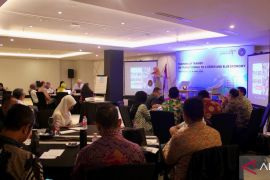Country Director of ILO in Indonesia Peter van Rooij officially opened the workshop which was participated in by representatives of labor unions, national and international organizations, UN bodies engaged in social security, and businessmen.
According to the ILO data, around 54 percent of Indonesian people, mostly informal workers and their families, do not have access to social and health protection.
About 83 percent of workers do not have access to social security benefits, such as old age, death and occupational accident protection.
Indonesia is facing a challenge on how to expand the coverage of social and health insurance for informal workers.
ILO said strong commitments from the central and local governments were needed to expand the coverage.
Without adequate social security, those who have freed themselves from poverty, face the risk of falling into poverty again.
Indonesia, with a total population of around 237 million, has enacted Law No. 40 on the National Social Security System since 2004.
But seven years since then, social security has not been implemented, pending the formation of BPJS.
Deliberations on the Bill on BPJS have been held over the past four parliament sittings but no agreement was reached by the parties involved - legislators and the government.
One of the problems where the DPR and the government failed to agree is on the transformation of four state insurance enterprises (BUMN), namely PT Taspen (for civil servants), PT Jamsostek (for workers), PT Askes (health insurance for civil servants), and PT
Asabri (for military personnel), into one institution, namely BPJS.
House Speaker Marzuki Alie expressed his regret for the failure to pass the Bill BPJS when closing the fourth parliament sitting 2010-2011.
(Uu.F001/HAJM)
Editor: Priyambodo RH
Copyright © ANTARA 2011












